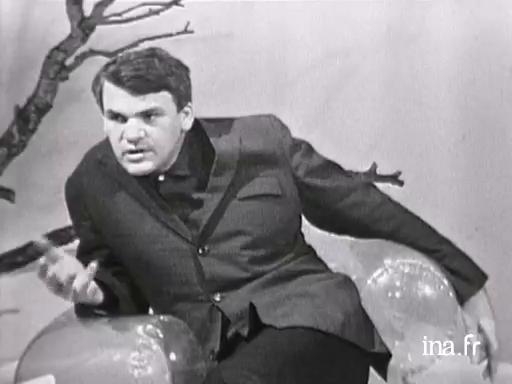Milan Kundera

Information
While balancing himself in an inflatable armchair, Milan Kundera presents his novel The Joke, whose story is a part of twenty years of Czech history.
- Europe > Czech Republic
- Europe > France > Ile-de-France > Paris
Context
Born in 1929 to a family of intellectuals and artists (his father was a musicologist and pianist), Milan Kundera studied literature, aesthetics and then cinema at a Prague university. He gained recognition very early on for his innovative poetry (Monologues, 1957). But his erratic relations with the Communist Party, with which he affiliated himself in 1948 before being crossed from their list in 1950, reintegrated in 1956 and definitively banished in 1970 because of his role in the Prague Spring, earned him the censorship of his work during the Soviet repression.
In 1975, the publishing year of The Joke, a novel that was immediately seen as being critical of totalitarianism, he exiled himself in France and was stripped of his nationality in 1979. From then on, he wrote in both Czech and French (Slowness, 1995), taught at the Paris's EHESS, and became a naturalised citizen in 1981. The publication of The Unbearable Lightness of Being in 1984 and its adaptation by Philip Kaufman in 1988 gained him international recognition, as confirmed by the 1990 publication of Immortality.
His works, through his novels and also his essays (The Art of the Novel, 1987), set up subtle meditation on the cultural origins and the modernness of European civilisation. His last novel was Ignorance (2000), written in French but first published in Spanish.




